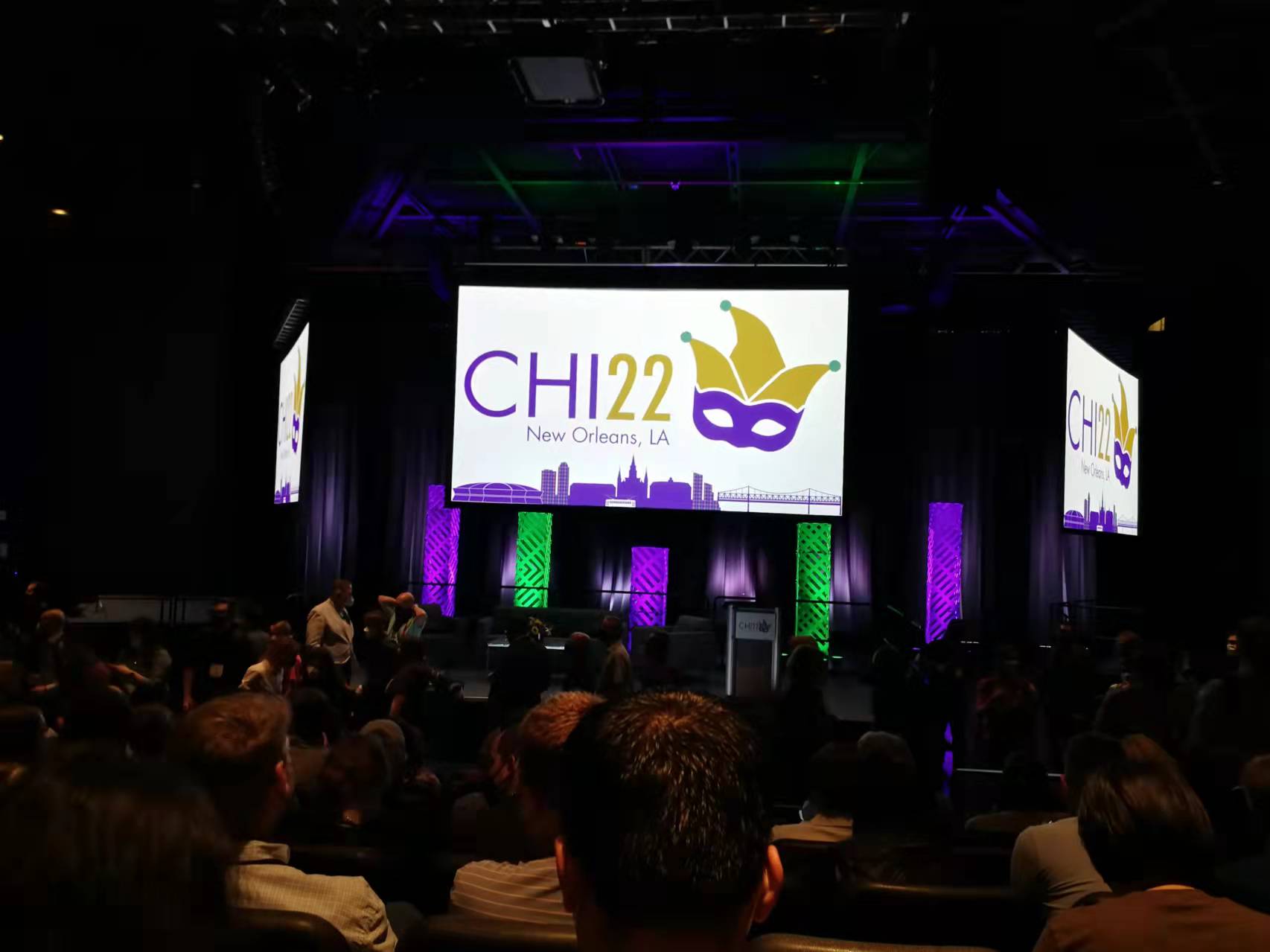The Accessible & Pervasive User EXperience (APEX) Group, founded and led by Mingming Fan, Assistant Professor of the Computational Media and Arts Thrust, had a strong performance at CHI 2022 in New Orleans, USA, from April 30 to May 5.
The ACM CHI Conference on Human Factors in Computing Systems is the premier international conference of Human-Computer Interaction (HCI). CHI – pronounced 'kai' – annually brings together researchers and practitioners from all over the world and from diverse cultures, backgrounds, and positionalities, who have an overarching goal to make the world a better place with interactive digital technologies.
The APEX group had five accepted papers, including one that has Xian Xu, our CMA second-year Ph.D. candidate, as the first author:
- "I Shake The Package To Check If It's Mine": A Study of Package Fetching Practices and Challenges of Blind and Low Vision People in China
As we enjoy the convenience of express delivery, have we ever wondered whether people with visual impairments could also fetch their express delivery smoothly? This work thoroughly reveals the methods and challenges encountered by visually impaired people in picking up express delivery and provides a solid basis and inspiration for the future development of intelligent interactive technology. - "I Don't Want People to Look At Me Differently": Designing User-Defined Above-the-Neck Gestures for People with Upper Body Motor Impairments
Touchscreens have become a common way of interacting with our smart devices. However, for the recognition of upper limb movement disorders (such as finger tremors, muscular dystrophy, loss of arms, etc.), the "accessible" touch screen becomes "inaccessible". This work adopts the user-centered research method in human-computer interaction, invites people with upper limb movement disabilities to deeply participate in the whole design process, and jointly design a set of interactive postures above the neck that are useful for them. - "Merging Results Is No Easy Task": An International Survey Study of Collaborative Data Analysis Practices Among UX Practitioners
Today's user experience analysis often requires teamwork. So how exactly do user analysts around the world work together? The study exposes the practices and challenges of collaborative data analysis for UX analysts by analyzing questionnaire feedback data from a sample of 279 UX professionals of diverse backgrounds from six continents. - From WOW to WHY: Guidelines for Creating the Opening of a Data Video with Cinematic Styles
*Xian Xu, a CMA second-year Ph.D. candidate, is the first author of this paper.
From cave paintings, Gutenberg, Edison to Hitchcock, they tell good human stories in different ways. Today, how to tell a data story well requires more attention and research. This work is the first time to apply film and television narrative and visual design skills to data stories and provides data designers with six cinematic stylized openings and 28 specific creation guidelines that can effectively improve the attractiveness of data video openings. This is a successful attempt at interdisciplinary experimental research between arts and computer science. - "I need to be professional until my new team uses emoji, GIFs, or memes first": New Collaborators’ Perspectives on Using Non-Textual Communication in Virtual Workspaces
Building rapport is essential for a healthy work environment. While this can be achieved through non-textual responses within chat-based systems (e.g., emoji, GIF, stickers, memes), those non-textual responses are typically associated with personal relationships and informal settings. This work studied the experiences of new collaborators in using non-textual responses to communicate with unacquainted teams and the effect of non-textual responses on new collaborators’ interpersonal bonds.
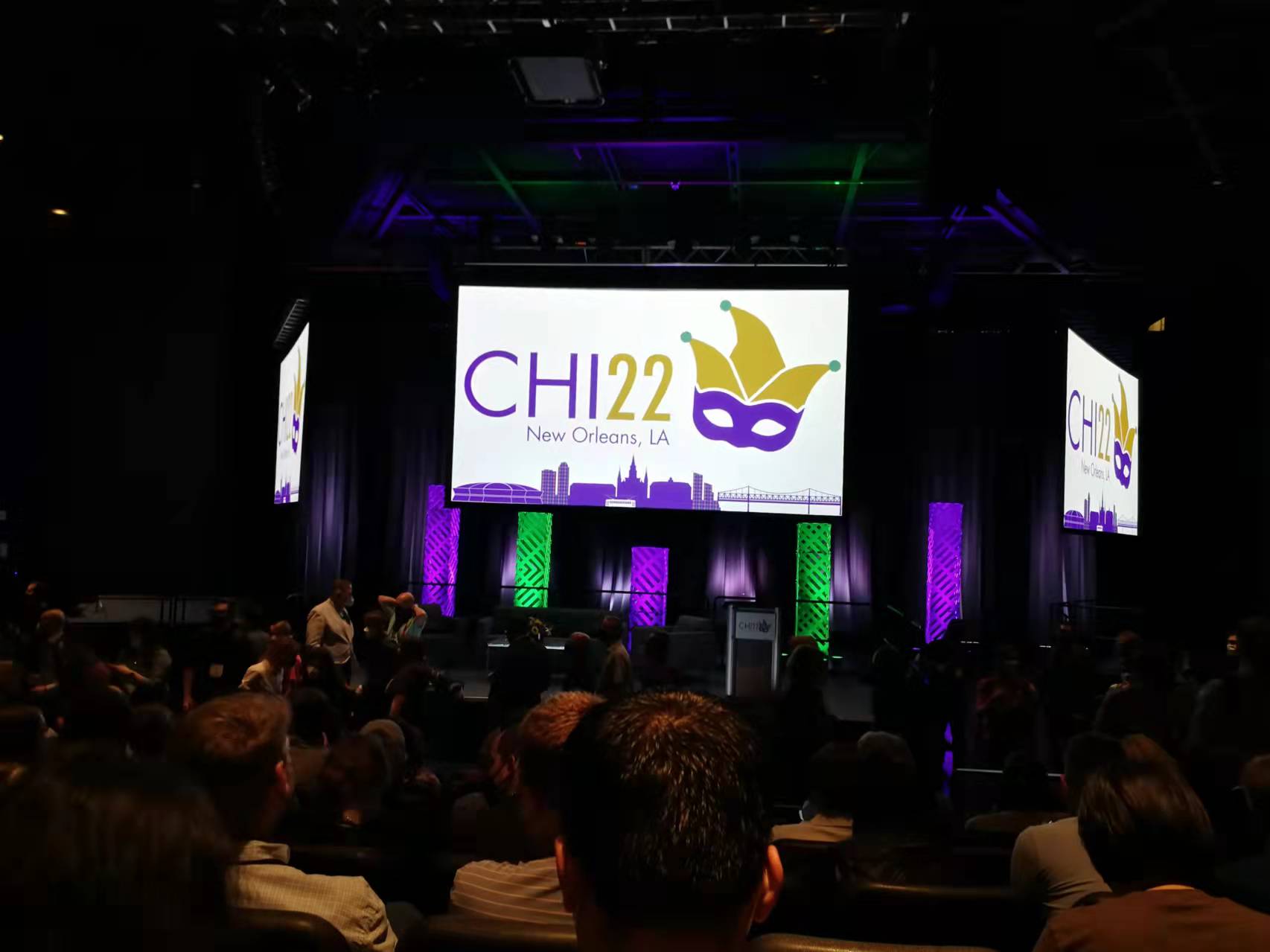
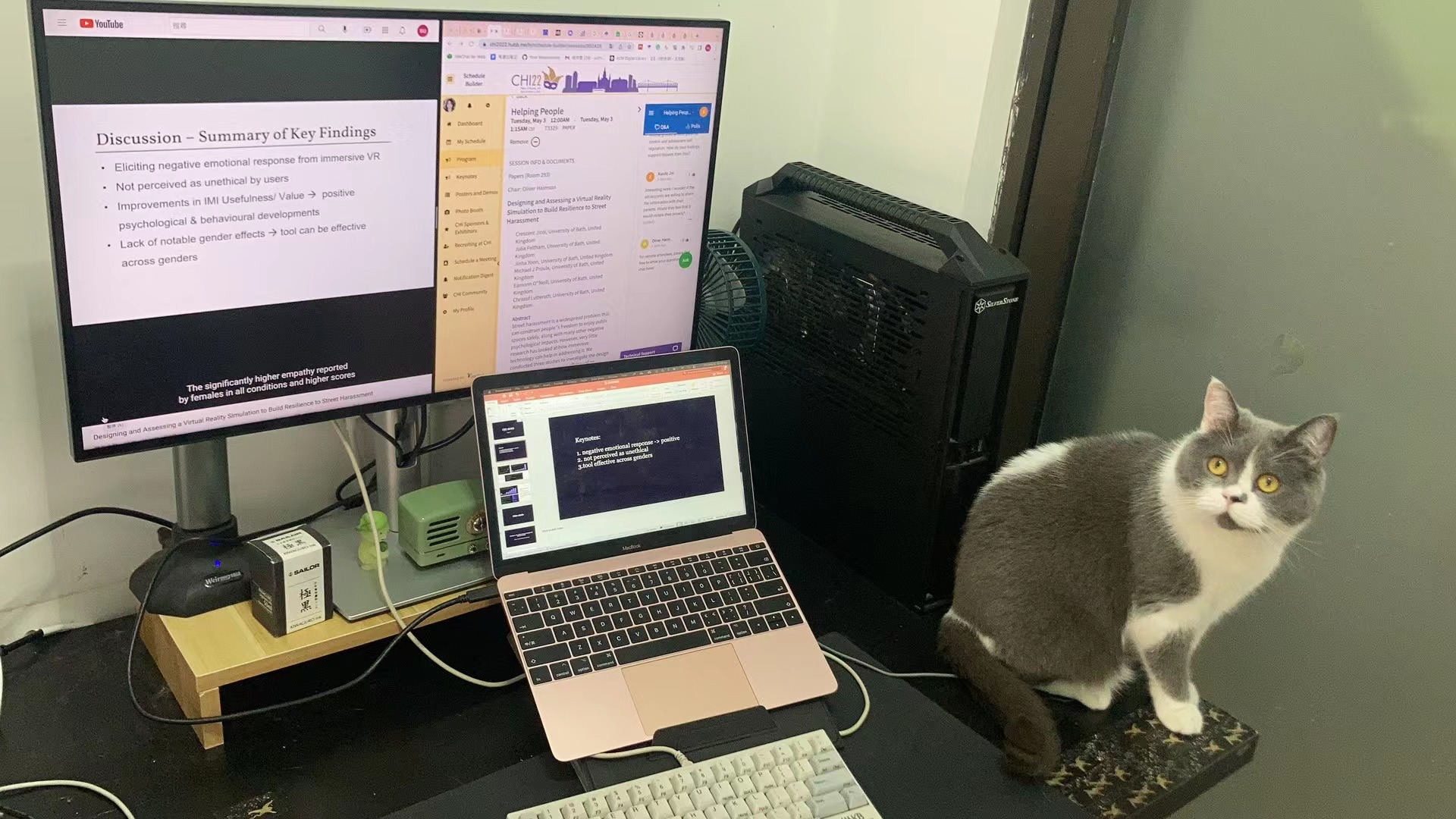
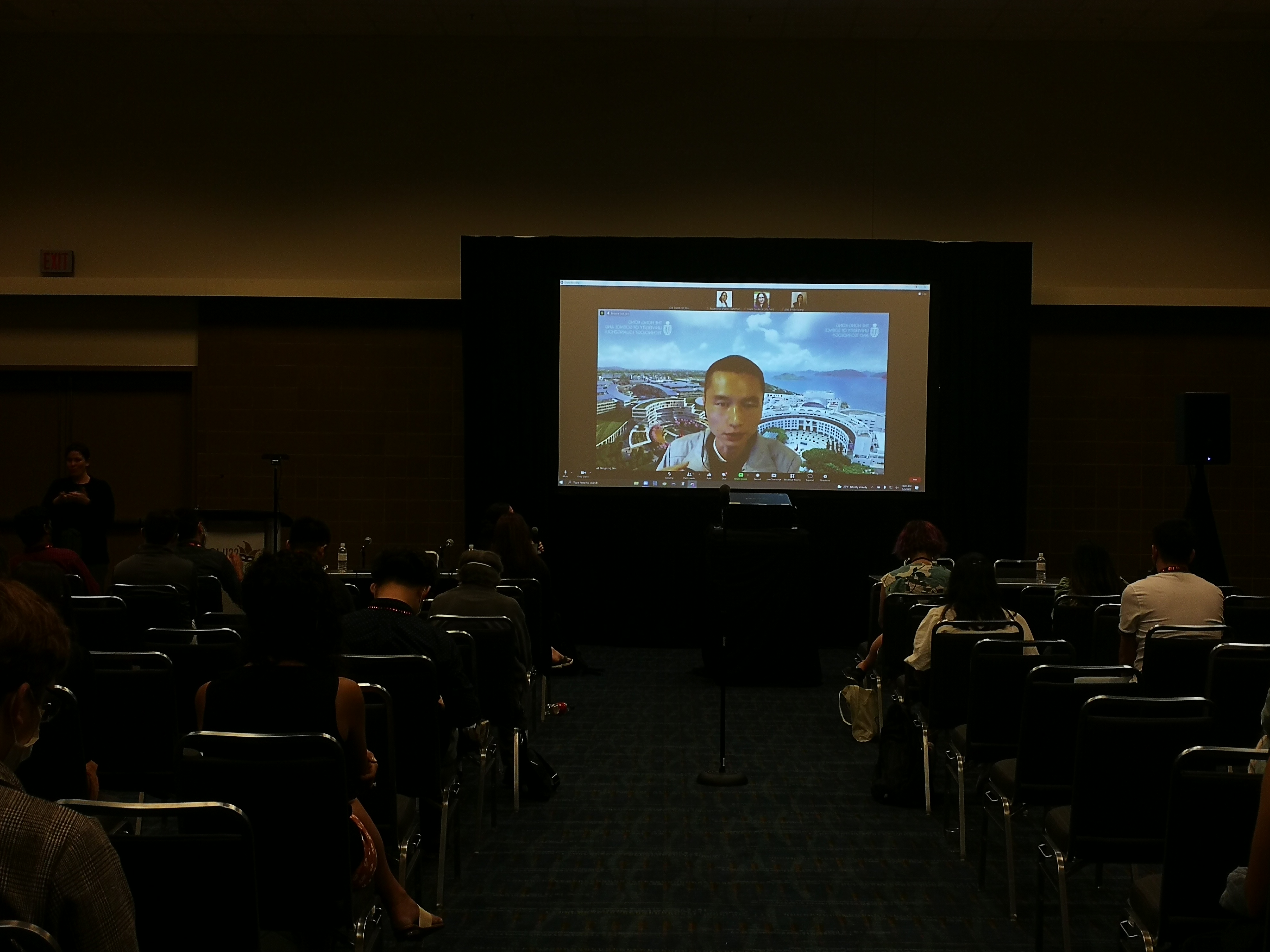
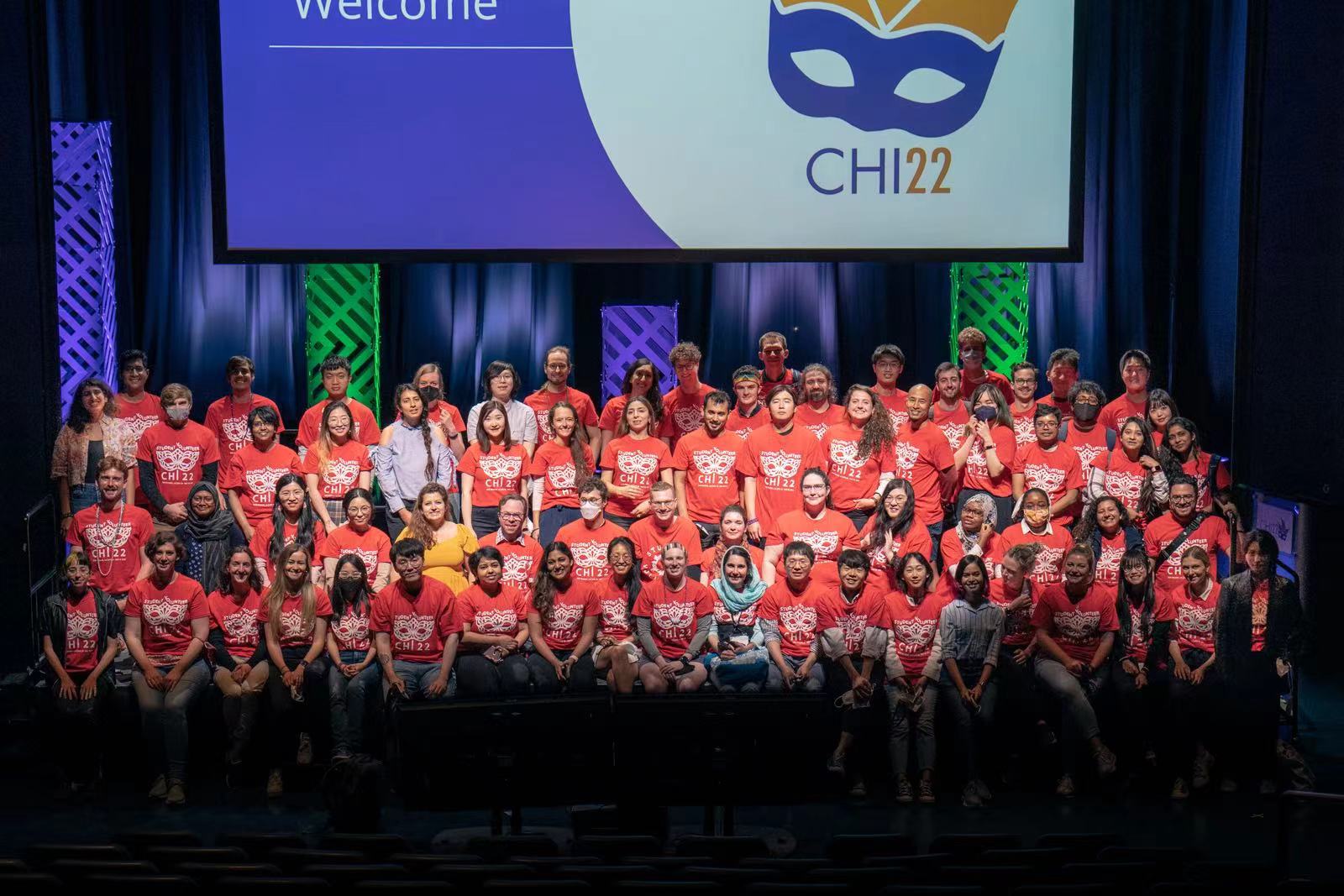
The Accessible & Pervasive User EXperience (APEX) Group conducts research in the fields of Human-Computer Interaction (HCI) and Accessibility. Its overarching goal is to EMPOWER people with technology, design, and humanity. APEX applies user-centered design (UCD), quantitative and qualitative methods, advanced computational algorithms (e.g., computer vision, natural language processing), interactive media (e.g., VR/AR, visualization), and sensing techniques to improve user experience (UX) and to address well-grounded user needs (especially the ones of older adults, people with disabilities, and other marginalized people). Website Link: https://www.mingmingfan.com/lab/
Mingming Fan is an Assistant Professor and the Postgraduate Program Coordinator of the Computational Media and Arts (CMA) Thrust at The Hong Kong University of Science and Technology (Guangzhou). He is also an Assistant Professor in the Division of Integrative Systems and Design (ISD) and an Affiliate Assistant Professor in the Department of Computer Science and Engineering (CSE) at The Hong Kong University of Science and Technology. Website Link: https://www.mingmingfan.com/
Xian Xu is a second-year Ph.D. candidate at CMA. She holds a BACHELOR of Arts in Directing(Film and TV Producing) and a MASTER of Art in Studies of Drama(Film & TV) in the Central Academy of Drama. During the seven years of study in CAD, Xian won the National Scholarship every year and finally graduated with the highest score in her major. She served as a counselor in the Peking Opera, Dance Drama, Opera, and Film & TV departments of the Central Academy of Drama during her three years of postgraduate study. She likes to explore and develop storytelling in new media and is a blogger with over 100,000 followers. She is a scriptwriter, participating in the TV play Our Glamorous Time as a scriptwriter in 2017. She wrote and published the book I Like To be Independent. Website Link: https://cma.hkust-gz.edu.cn/research-students/xian-xu-3/
